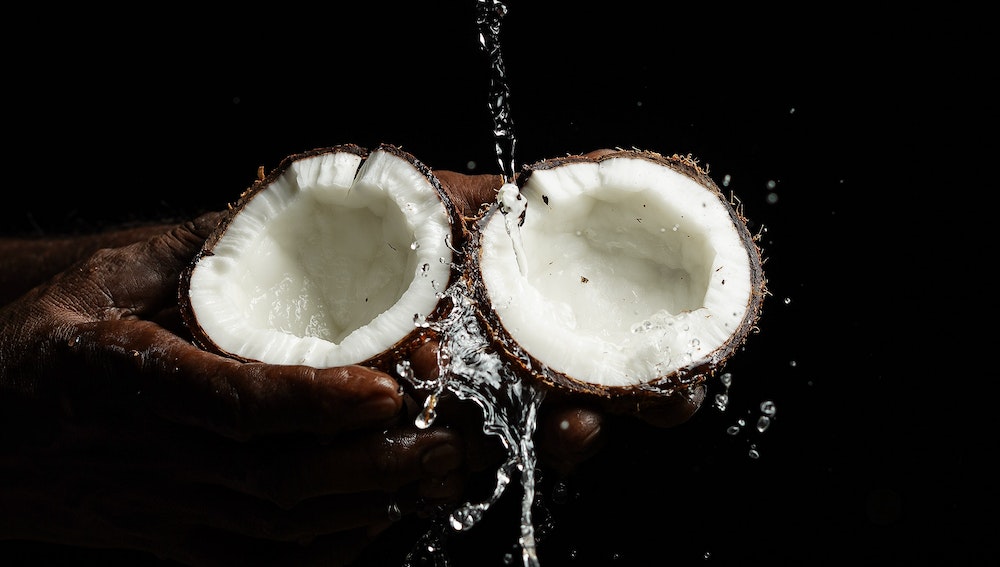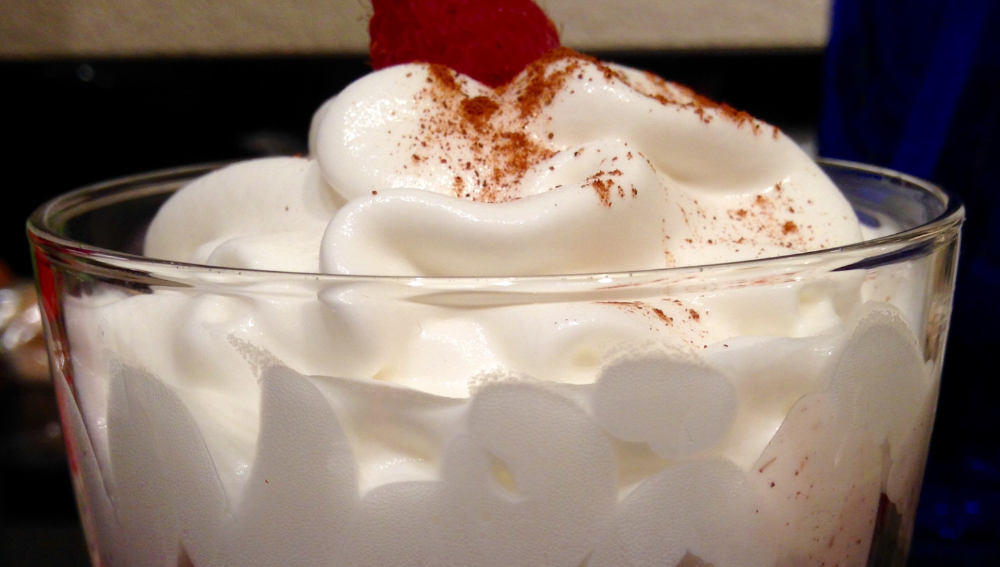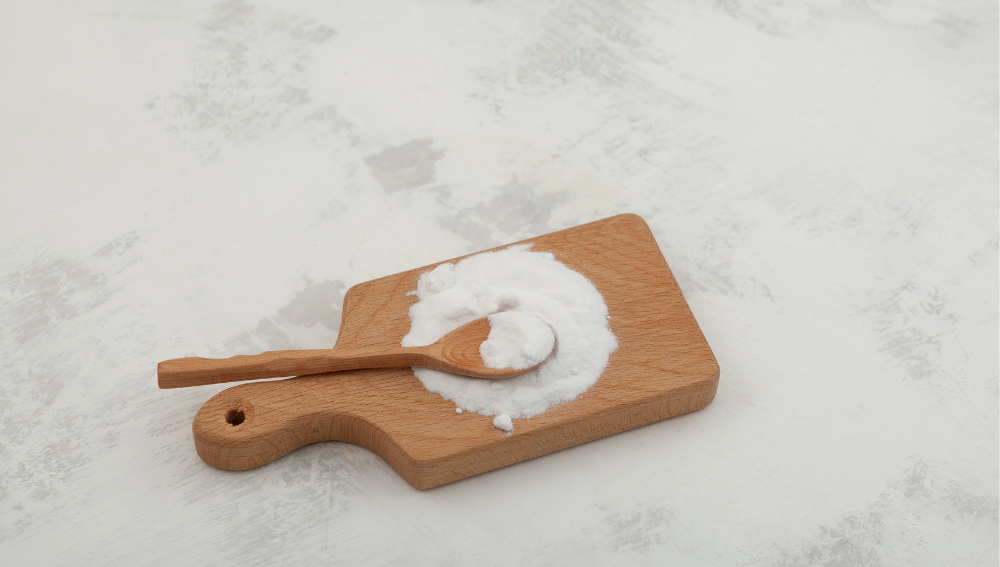Coconut water is a popular drink that’s often touted for its health benefits. However, it’s not always easy to find or affordable for everyone.
Fortunately, there are many substitutes for coconut water that can be just as nutritious and delicious. In this article, I’ll explore some of the best coconut water substitutes and how to use them in cooking, baking, and beverages.

Understanding Coconut Water Coconut water is the clear liquid found inside young, green coconuts. It’s naturally sweet and refreshing, and it’s packed with nutrients like potassium, magnesium, and calcium.
Coconut water is often marketed as a sports drink or a health tonic because of its hydrating properties and electrolyte content.
However, it’s not always easy to find fresh coconut water, and it can be expensive when it is available. That’s where coconut water substitutes come in.
Key Takeaways
- Coconut water is a popular drink that’s often touted for its health benefits.
- There are many substitutes for coconut water that can be just as nutritious and delicious.
- Some of the best coconut water substitutes include natural juices, nut and plant waters, milk alternatives, and plain water.
Understanding Coconut Water
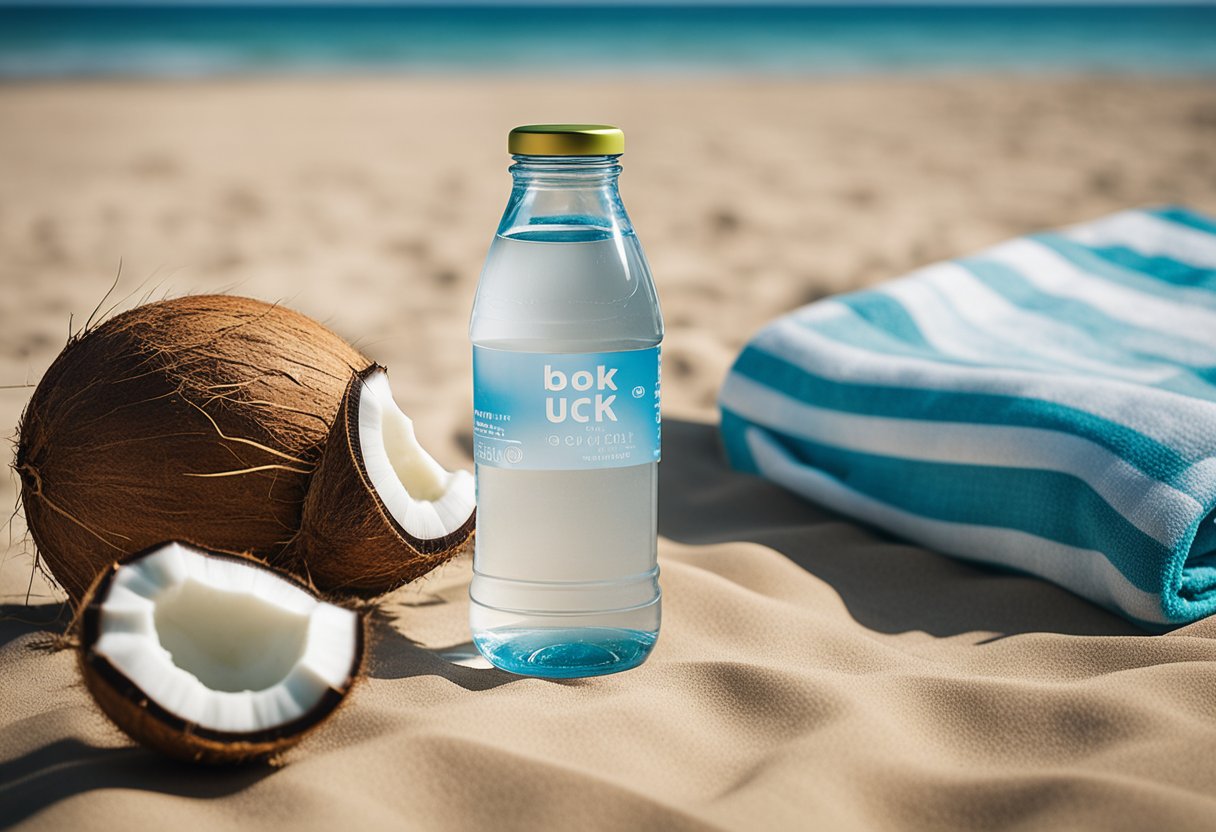
Coconut water is a clear liquid that is found inside young, green coconuts. It is a popular drink in tropical regions and is known for its refreshing taste.
Coconut water is not the same as coconut milk, which is made from the flesh of mature coconuts.
Coconut water is a natural source of electrolytes, minerals, and vitamins. It is low in calories and contains natural sugars that provide energy.
One of the key benefits of coconut water is that it is high in potassium, which is an essential mineral that helps to regulate blood pressure and maintain heart health.
In addition to potassium, coconut water contains other minerals such as calcium, magnesium, and phosphorus. These minerals are important for maintaining healthy bones and teeth.
Coconut water is also a good source of electrolytes, which are minerals that help to regulate fluid balance in the body. Electrolytes are important for hydration, especially during exercise or hot weather.
Overall, coconut water is a healthy and natural alternative to sugary sports drinks or sodas. It is a great way to stay hydrated and replenish electrolytes after a workout or during a hot day.
Why Substitute Coconut Water
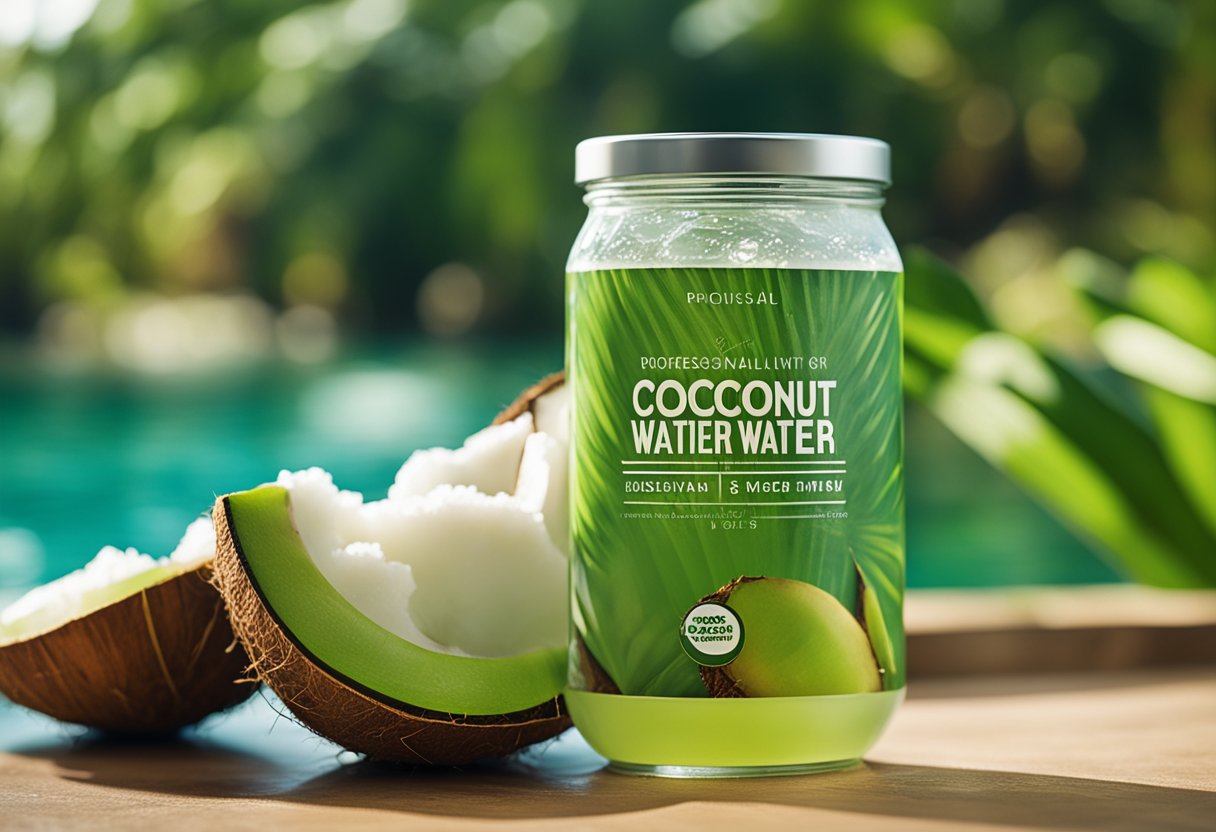
As someone who enjoys coconut water, you might wonder why you would need to substitute it. There are a few reasons why you might want to consider a substitute for coconut water:
- Availability: Coconut water may not be readily available in your area, or it may be too expensive to purchase regularly.
- Preference: You may not enjoy the taste of coconut water or may be looking for a different flavor profile.
- Nutrition: While coconut water is a healthy beverage, you may be looking for an alternative with different nutritional benefits.
Fortunately, there are several substitutes for coconut water that you can try. These substitutes range from other types of water to nut milks and fruit juices.
When choosing a substitute for coconut water, it’s important to consider what you’re looking for in terms of taste and nutrition. Some substitutes may have a similar flavor profile to coconut water, while others may be completely different.
In addition, it’s important to consider the nutritional content of the substitute. While coconut water is low in calories and high in potassium, other substitutes may have different nutritional benefits.
Overall, there are several reasons why you might want to substitute coconut water, and there are plenty of options available. Whether you’re looking for a similar flavor profile or different nutritional benefits, there’s a substitute out there that will meet your needs.
Natural Juice Alternatives
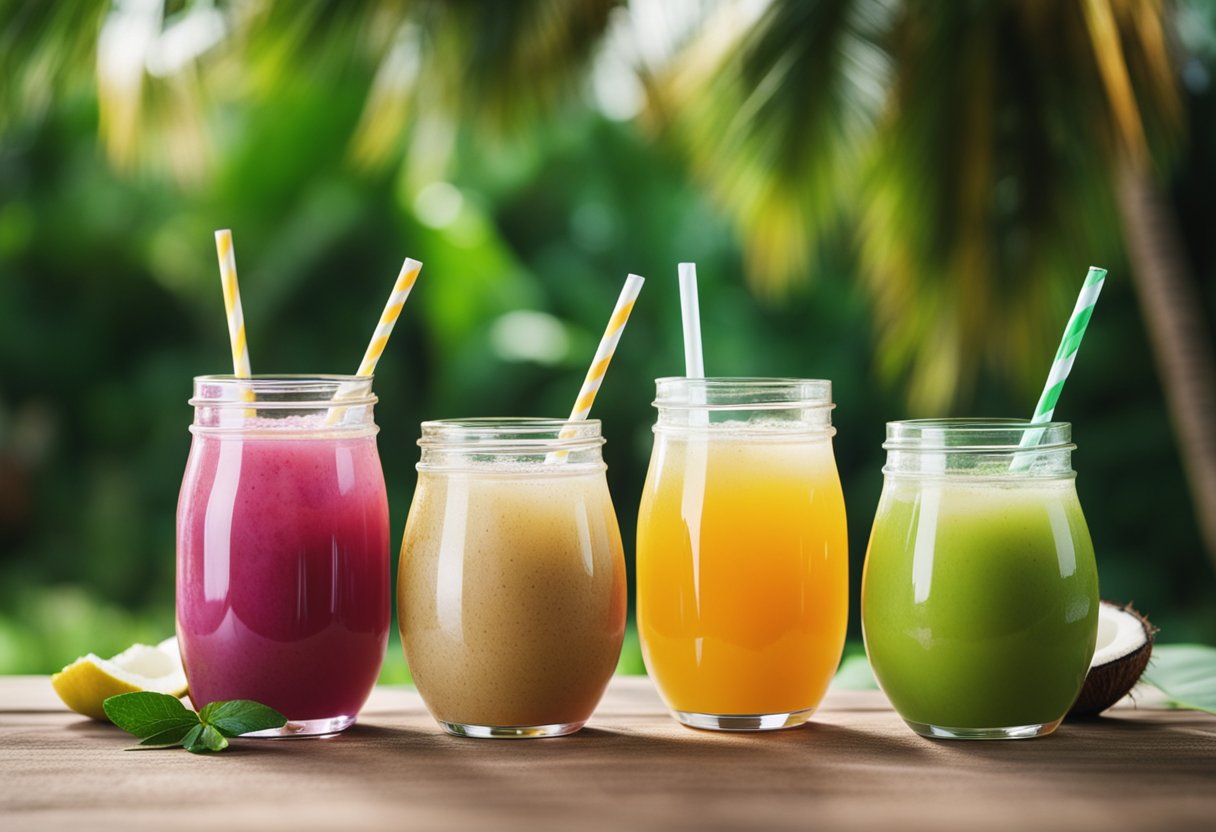
When it comes to finding a natural alternative to coconut water, there are a few options to choose from.
One popular option is watermelon water, which is made by blending fresh watermelon and straining out any pulp. Watermelon water is a refreshing and hydrating drink that is rich in vitamins A and C, as well as potassium.
Another natural juice alternative to coconut water is apple juice. While apple juice may not have the same electrolyte content as coconut water, it is still a great source of hydration and is rich in vitamin C.
If you’re looking for a more hydrating option, you can try diluting apple juice with water to make it less sweet.
Watermelon juice is another great option if you’re looking for a natural alternative to coconut water. Watermelon juice is made by blending fresh watermelon and straining out any pulp.
Like watermelon water, watermelon juice is rich in vitamins A and C, as well as potassium.
Pineapple juice is another natural juice alternative to coconut water. Pineapple juice is a great source of hydration and is rich in vitamin C. It also contains bromelain, an enzyme that can aid in digestion.
Overall, there are many natural juice alternatives to coconut water that can provide hydration and nutrients.
Whether you prefer watermelon water, apple juice, watermelon juice, pineapple juice, or another type of fruit juice, there are plenty of options to choose from.
Nut and Plant Waters
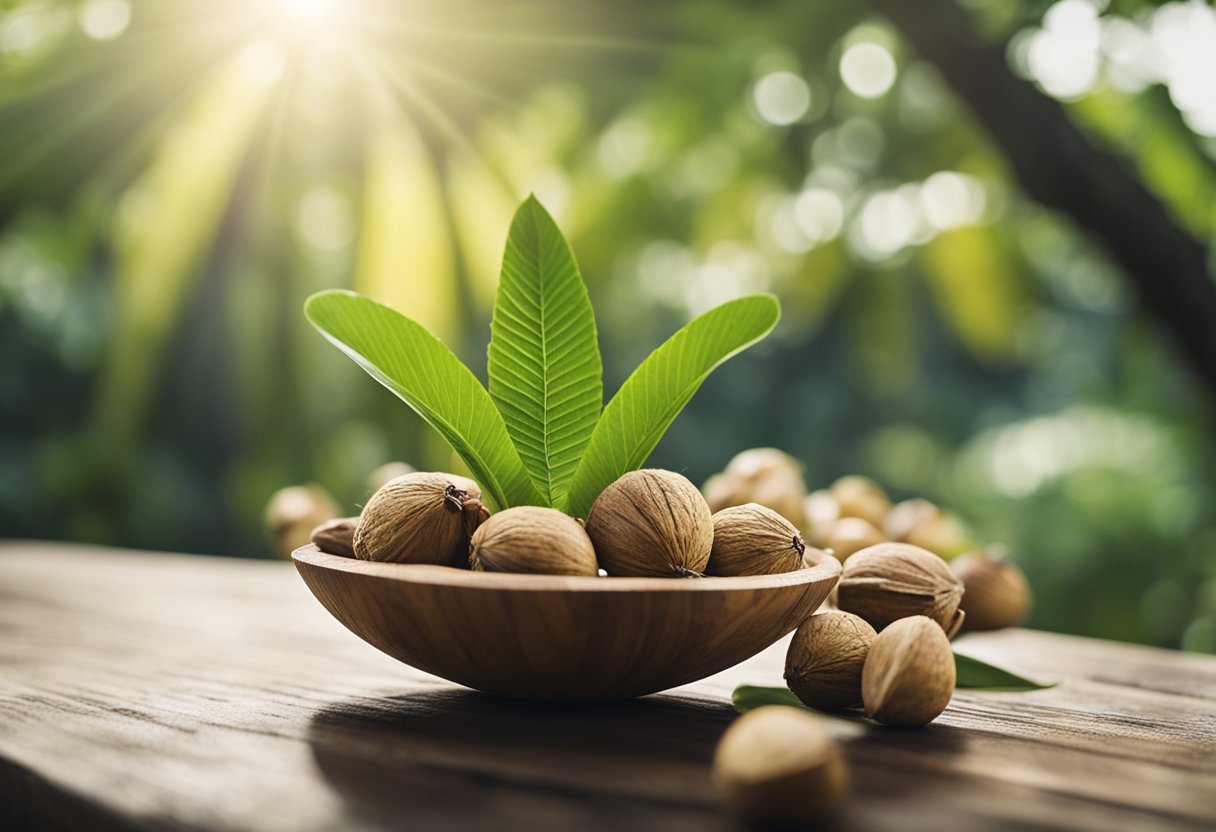
As an alternative to coconut water, nut and plant waters can be used in various recipes. These beverages are made by blending or extracting water from different nuts and plants.
Here are some options to consider:
Birch Water
Birch water is a clear liquid that is extracted from birch trees. It has a slightly sweet taste and is rich in vitamins and minerals, including calcium, magnesium, and potassium.
Birch water is also a good source of electrolytes, making it an excellent substitute for coconut water. It can be used in smoothies, cocktails, and other recipes that call for coconut water.
Maple Water
Maple water is a clear liquid that is harvested from maple trees. It has a subtle sweetness and a delicate flavor that is similar to coconut water.
Maple water is also rich in vitamins and minerals, including calcium, potassium, and magnesium. It is an excellent alternative to coconut water in smoothies, juices, and other beverages.
Cactus Water
Cactus water is a refreshing beverage that is made from the juice of the prickly pear cactus. It has a slightly sweet taste and is a good source of vitamins and minerals, including calcium, magnesium, and potassium.
Cactus water is also rich in antioxidants, making it a healthy substitute for coconut water. It can be used in smoothies, cocktails, and other recipes that call for coconut water.
Nut Water
Nut water is a type of plant-based milk that is made from nuts such as almonds, cashews, and pistachios. It has a creamy texture and a nutty flavor that is similar to coconut water.
Nut water is also rich in vitamins and minerals, including calcium, magnesium, and potassium. It can be used in smoothies, coffee, and other recipes that call for coconut water.
Aloe Vera Juice
Aloe vera juice is a clear liquid that is extracted from the aloe vera plant. It has a slightly bitter taste and is rich in vitamins and minerals, including calcium, magnesium, and potassium.
Aloe vera juice is also a good source of antioxidants, making it a healthy substitute for coconut water. It can be used in smoothies, juices, and other recipes that call for coconut water.
Aloe Vera Water
Aloe vera water is a clear liquid that is made by blending aloe vera gel with water. It has a slightly sweet taste and is rich in vitamins and minerals, including calcium, magnesium, and potassium.
Aloe vera water is also a good source of antioxidants, making it a healthy substitute for coconut water. It can be used in smoothies, juices, and other recipes that call for coconut water.
Overall, nut and plant waters are excellent substitutes for coconut water. They are rich in vitamins and minerals, low in calories, and can be used in a variety of recipes.
Milk Alternatives
When it comes to finding a substitute for coconut water, milk alternatives can be a great option. There are many different types of milk alternatives available, each with their own unique taste and nutritional benefits.
One popular milk alternative is oat milk. Made from soaked and blended oats, oat milk has a creamy texture and a slightly sweet taste. It is also a good source of fiber and can be used in a variety of recipes.
Another milk alternative is rice milk, which is made from milled rice and water. Rice milk is naturally sweet and has a thin consistency, making it a good option for adding to smoothies and other drinks.
Cashew juice is another milk alternative that is gaining popularity. Made from blending cashews with water, cashew juice has a rich, creamy texture and a slightly nutty flavor. It is also a good source of healthy fats and protein.
For those who still want to enjoy the taste of coconut, mixing coconut milk with water can be a great substitute for coconut water. This mixture has a similar taste and nutritional profile to coconut water, but with a slightly creamier texture.
Overall, there are many milk alternatives available that can be used as a substitute for coconut water.
Whether you prefer the taste of oat milk, rice milk, cashew juice, or a mixture of coconut milk and water, there is sure to be a milk alternative that meets your needs.
Water Alternatives
As a substitute for coconut water, plain water is an obvious choice. It is easily accessible, affordable, and has no calories or added sugars.
While it may not have the same nutritional benefits as coconut water, it can still help keep you hydrated.
Sparkling water is another option. It can add a bit of fizz and flavor to your drink without the added sugars found in many coconut water brands.
However, be aware that some sparkling water brands may contain added flavors or sweeteners, so make sure to read the label before purchasing.
Regular water, whether it’s tap or bottled, is also a good alternative to coconut water. It may not have the same electrolyte content as coconut water, but it is still an effective way to stay hydrated.
When choosing a water alternative, it’s important to consider your personal taste preferences and any dietary restrictions.
Some people may prefer the taste of sparkling water, while others may prefer plain water. It’s also important to read the label and check for any added sugars or flavors.
Overall, water is a simple and effective substitute for coconut water. It may not have the same nutritional benefits, but it is still a great way to stay hydrated.
Substitutes in Cooking
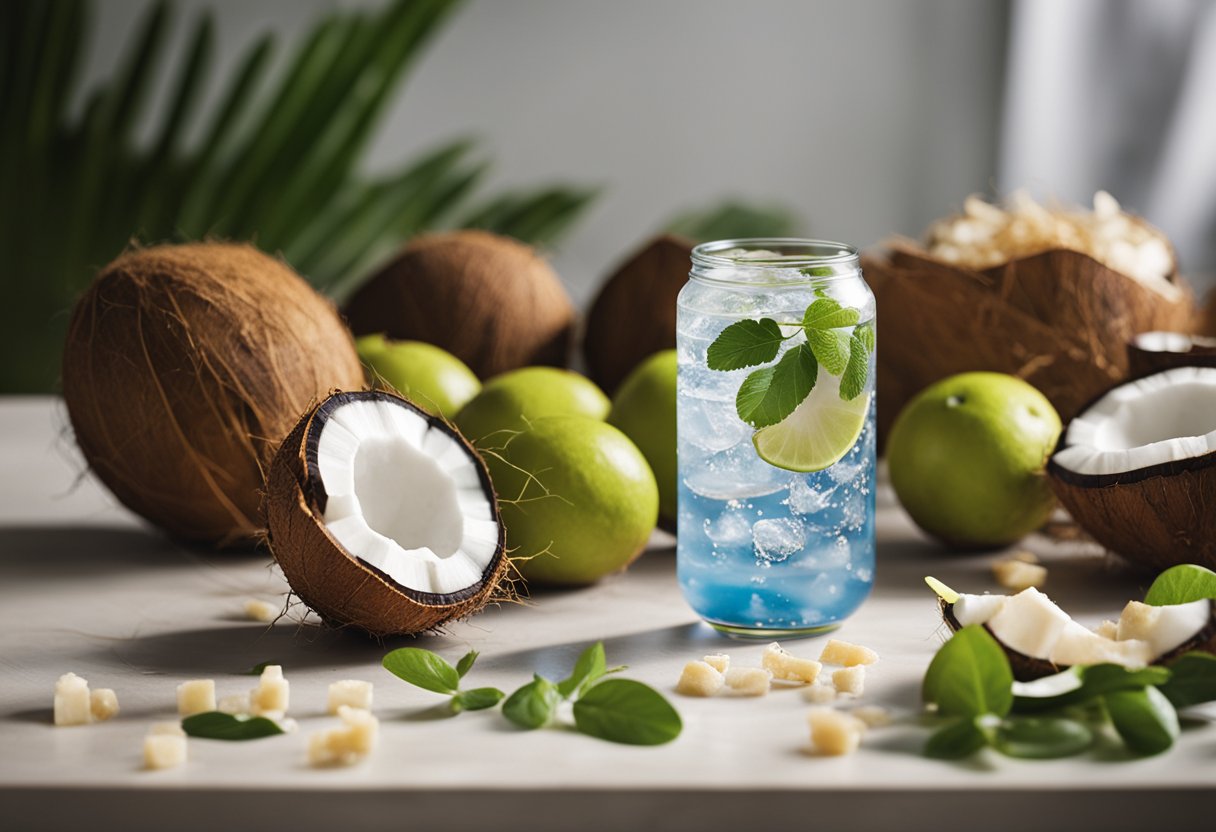
When it comes to cooking, coconut water can be a versatile ingredient. It can be used in curries, soups, sauces, and even as a seasoning. However, if you need to substitute coconut water, there are several options that can work just as well.
One of the best substitutes for coconut water is birch water or maple water. These options have a similar nutritional profile to coconut water and can be used in recipes that call for it.
Cactus water is another option that can work well, especially in recipes that require a more subtle flavor.
If you’re looking for a substitute that has a similar taste to coconut water, you can try using coconut extract or coconut milk. These options will add the same nutty flavor to your dishes, but keep in mind that they are higher in fat and calories than coconut water.
For a zero-calorie and sugar-free option, plain old water is your best bet. It won’t add any flavor to your dishes, but it will provide the necessary liquid for cooking.
When cooking with coconut water substitutes, it’s important to keep in mind that they may not caramelize in the same way that coconut water does.
This can affect the texture and flavor of your dishes, so it’s important to experiment with different substitutes to find the one that works best for your recipe.
In summary, there are several substitutes for coconut water that can work well in cooking, including birch water, maple water, cactus water, coconut extract, coconut milk, and plain water.
Experiment with different options to find the one that works best for your recipe, and keep in mind that substitutes may not caramelize in the same way as coconut water.
Substitutes in Baking
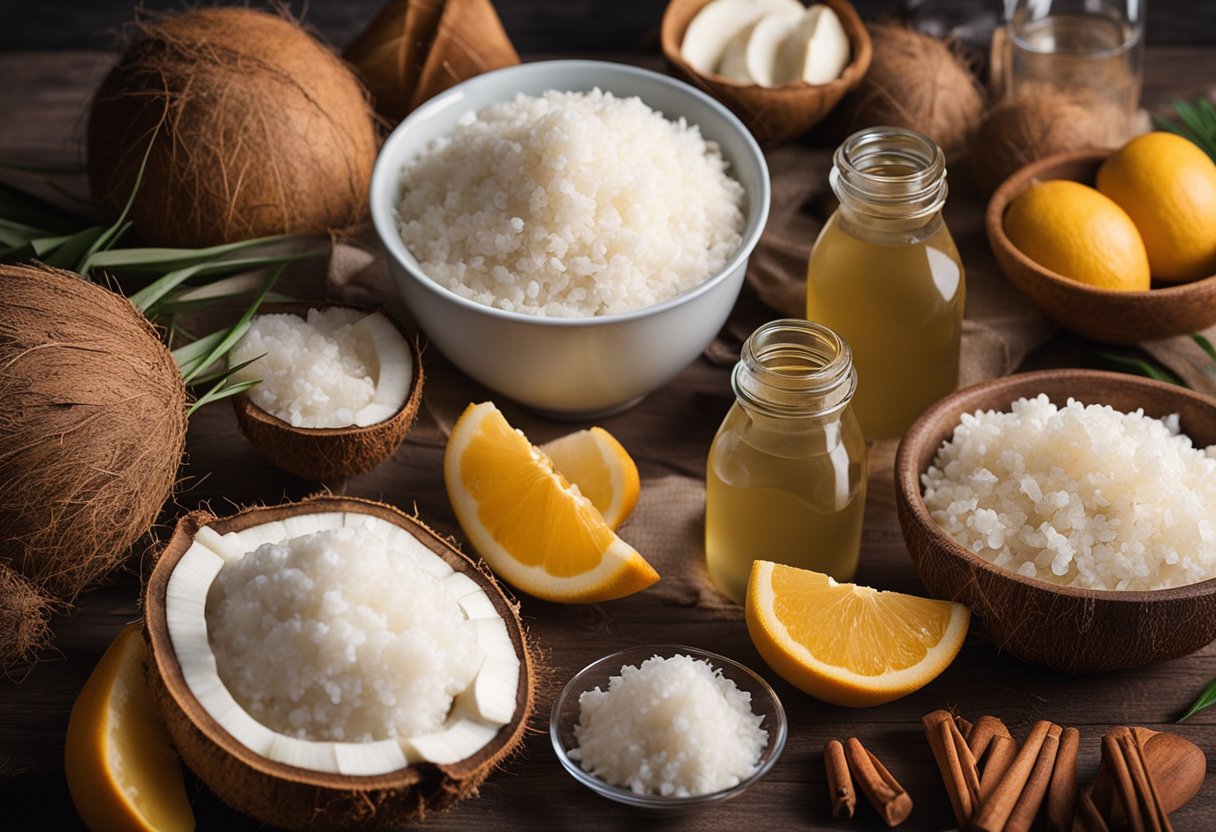
When it comes to baking, coconut water can be a great ingredient to add moisture and flavor to cakes and pies.
However, if you don’t have coconut water on hand or if you want to avoid using it for any reason, there are some substitutes that you can try.
One option is to use plain water or milk as a substitute for coconut water. While this won’t give you the same flavor as coconut water, it will still add moisture to your baked goods. You can also add a bit of shredded coconut to the recipe to get some of that coconut flavor.
Another option is to use a nut milk, such as almond or cashew milk, instead of coconut water. These milks have a nutty flavor that can complement baked goods nicely.
You can also use coconut milk as a substitute for coconut water, but be aware that it will add more coconut flavor to the recipe.
If you want to avoid using any kind of milk or milk substitute, you can try using fruit juice instead of coconut water.
Pineapple juice, for example, can add a tropical flavor to your baked goods. You can also use apple juice or orange juice, depending on the flavor profile you’re going for.
In summary, when substituting for coconut water in baking, you can use plain water or milk, nut milk, coconut milk, or fruit juice.
Adding shredded coconut to the recipe can also help add some coconut flavor. Experiment with different substitutes to find the one that works best for your recipe.
Substitutes in Beverages
When it comes to finding substitutes for coconut water in beverages, there are plenty of options available.
Whether you’re making a smoothie, a cocktail, a sports drink, or a post-workout drink, you can find a suitable replacement for coconut water. Here are some of the best substitutes:
Birch Water
Birch water is a natural beverage made from the sap of birch trees. It has a light, sweet flavor and a slightly earthy aroma that makes it an ideal substitute for coconut water.
Birch water contains electrolytes, antioxidants, and vitamins, making it a great choice for a post-workout drink or a sports drink.
Maple Water
Maple water is another excellent substitute for coconut water. It is made from the sap of maple trees and has a slightly sweet flavor. Maple water is a good source of electrolytes, minerals, and antioxidants, making it a healthy choice for a sports drink or a post-workout drink.
Cactus Water
Cactus water is a refreshing and hydrating beverage that can be used as a substitute for coconut water. It is made from the fruit of the prickly pear cactus and has a slightly sweet, citrusy flavor.
Cactus water is rich in antioxidants, vitamins, and minerals, making it a healthy choice for a post-workout drink or a sports drink.
Watermelon Water
Watermelon water is a delicious and refreshing beverage that can be used as a substitute for coconut water. It is made from the juice of fresh watermelon and has a sweet, fruity flavor.
Watermelon water is a good source of electrolytes, vitamins, and antioxidants, making it a healthy choice for a sports drink or a post-workout drink.
Aloe Vera Juice
Aloe vera juice is a hydrating and refreshing beverage that can be used as a substitute for coconut water.
It has a slightly sweet, slightly tangy flavor and is rich in antioxidants, vitamins, and minerals. Aloe vera juice is a good choice for a post-workout drink or a sports drink.
Plain Water
If you’re looking for a zero-calorie, sugar-free substitute for coconut water, plain water is your best bet. It may not have the same nutritional benefits as some of the other substitutes, but it is still an excellent choice for staying hydrated.
In conclusion, there are plenty of substitutes for coconut water in beverages. Whether you prefer birch water, maple water, cactus water, watermelon water, aloe vera juice, or plain water, you can find a suitable replacement for coconut water.
Health Aspects of Substitutes
https://www.youtube.com/watch?v=kcnGmKi3xms
As a nutritionist, I always recommend consuming substitutes for coconut water that are low in sugar and calories.
Birch water, maple water, and plain water are excellent options for those who want to avoid the high sugar content of coconut water. Cactus water is also a great alternative as it is low in calories and sugar.
When it comes to health benefits, substitutes for coconut water are packed with antioxidants, magnesium, sodium, calcium, and vitamin C. Birch water, for example, contains up to 4 times more magnesium than coconut water.
Magnesium is essential for maintaining healthy bones and muscles. Maple water is also rich in antioxidants, which help fight inflammation and protect against chronic diseases.
For those with diabetes, it is important to choose substitutes that are low in sugar and have a low glycemic index.
Birch water and plain water are great options as they have a glycemic index of zero. Cactus water is also a good choice as it has a low glycemic index.
Substitutes for coconut water also have hydrating properties, which are essential for maintaining kidney health and aiding digestion.
Watermelon water, for example, is rich in potassium, which helps regulate blood pressure and promotes kidney function. Aloe water is also a great option as it contains enzymes that aid digestion and promote healthy gut bacteria.
Overall, there are many substitutes for coconut water that offer a range of health benefits. By choosing the right substitute, you can support your health goals, whether it’s weight loss, blood sugar control, or simply staying hydrated.
Other Considerations
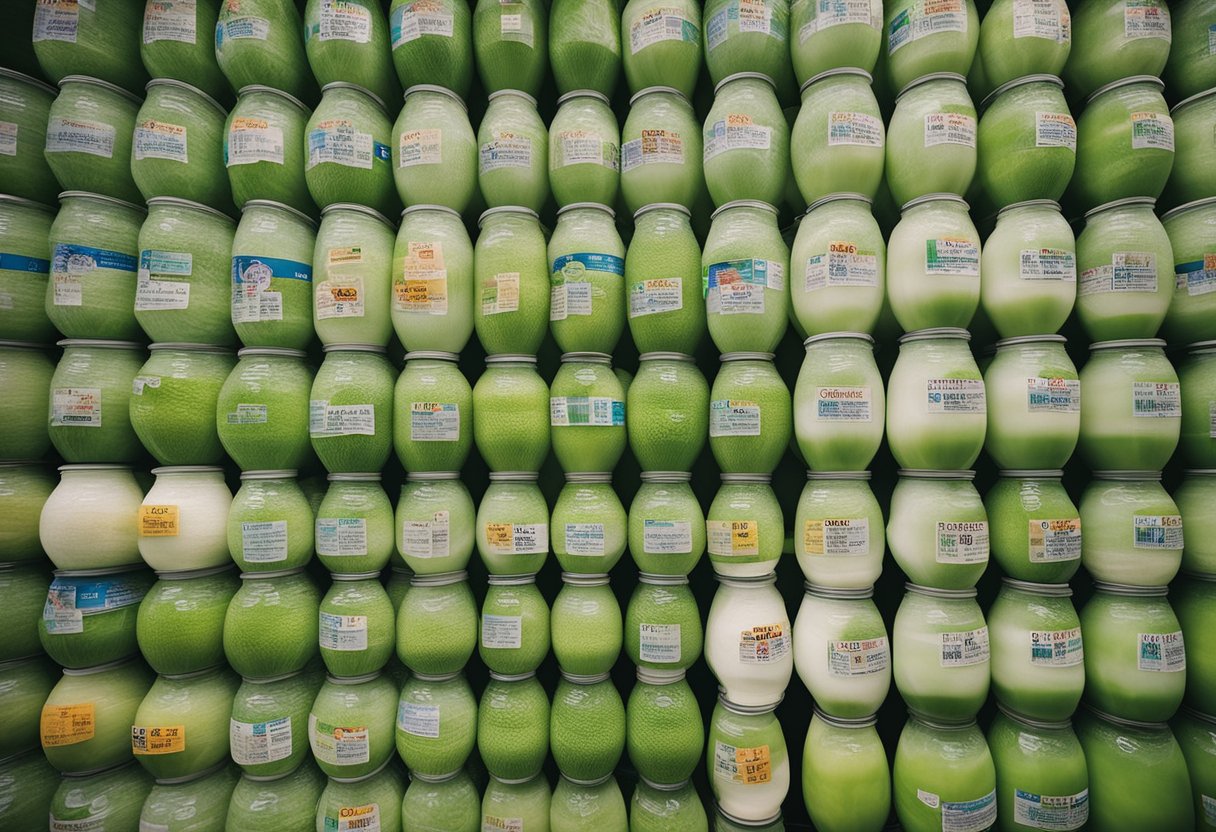
When looking for a substitute for coconut water, there are several factors to consider.
Here are some additional options to consider:
Flavor
If you are looking for a substitute with a similar flavor profile to coconut water, try using birch water, maple water, or cactus water. These options have a similar taste to coconut water, but with slightly different notes.
Sweetened or Unsweetened
Coconut water is available both sweetened and unsweetened, so consider whether you want a substitute with added sugar or not. If you prefer unsweetened options, try using plain water or diluted coconut milk.
Neutral
If you want a neutral-tasting substitute, try using plain water or birch water. These options have a very mild taste and won’t overpower other flavors in your recipe.
Coconut Extract
If you want to add a coconut flavor to your recipe without using coconut water, consider using coconut extract. This concentrated flavoring can be added to water or other liquids to create a coconut flavor.
Young Coconuts vs. Mature Coconuts
Young coconuts are typically used to make coconut water, while mature coconuts are used for coconut milk. If you can’t find young coconuts, try using a substitute that has a similar nutritional profile, such as birch water or maple water.
1:1 Ratio
If your recipe calls for a specific amount of coconut water, try using a 1:1 ratio of your chosen substitute. This will ensure that your recipe turns out as intended.
No Added Sugar or Natural Sweetener
If you prefer not to use sweetened substitutes, try using plain water or a natural sweetener such as honey or agave nectar. These options will add sweetness to your recipe without adding refined sugar.
Salty or Amino Acids
If you are looking for a substitute with a salty flavor or amino acids, try using pickle juice or soy sauce. These options may not have the same nutritional profile as coconut water, but they can add a unique flavor to your recipe.
Vegan-Friendly
If you are looking for a vegan-friendly substitute, consider using birch water, maple water, or cactus water. These options are all plant-based and suitable for a vegan diet.
Frequently Asked Questions
What are some alternative drinks to coconut water?
If you are looking for a substitute for coconut water, there are several alternatives you can try. Some of the best options include birch water, maple water, and cactus water.
Watermelon water and milk can also be used if you want to move away from coconut water’s nutty flavor. Coconut extract or coconut milk can also be used to replicate the flavor.
Can water be used as a substitute for coconut water?
While water can be used as a substitute for coconut water, it does not have the same nutritional value.
Coconut water contains electrolytes that help to rehydrate the body, making it a better option for post-workout hydration. However, if you are looking for a low-calorie and sugar-free option, plain water is your best bet.
What are the benefits of drinking watermelon water?
Watermelon water is a refreshing and hydrating drink that is packed with nutrients. It is a good source of vitamin C, potassium, and lycopene, which can help to improve heart health and lower the risk of cancer.
It is also low in calories and sugar, making it a great option for those who are watching their weight.
What are the benefits of drinking maple water?
Maple water is a natural and refreshing drink that is rich in antioxidants, minerals, and electrolytes. It is a good source of calcium, potassium, and magnesium, which can help to improve bone health and reduce the risk of heart disease.
It is also low in calories and sugar, making it a great option for those who are looking for a healthy and natural alternative to coconut water.
What are the benefits of drinking cactus water?
Cactus water is a natural and refreshing drink that is packed with nutrients. It is a good source of antioxidants, vitamins, and minerals, which can help to boost the immune system and improve overall health.
It is also low in calories and sugar, making it a great option for those who are looking for a healthy and natural alternative to coconut water.
What are some substitutes for coconut milk in recipes?
If you are looking for a substitute for coconut milk in recipes, there are several options you can try. Some of the best substitutes include almond milk, soy milk, cashew milk, and rice milk.
You can also use heavy cream or half-and-half if you are not concerned about the recipe being dairy-free.



